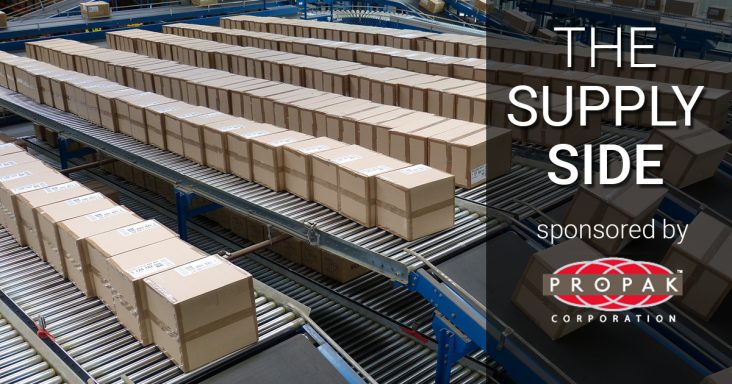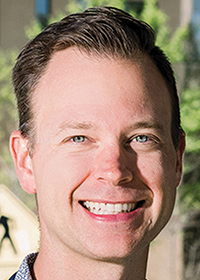The Supply Side: Nearly a decade since $1M gift created McMillon Innovation Studio at UA
by April 15, 2023 10:45 am 969 views

It’s been nearly a decade since Walmart CEO Doug McMillon and his wife Shelley gave $1 million to his alma mater, creating an extra-curricular innovation studio for entrepreneurial students.
The McMillon Innovation Studio at the University of Arkansas has seen hundreds of students participate in the studio’s design and product programs since classes began in 2016.
The McMillons gave $1 million in 2014 and committed an additional $1 million in 2020.
“Learning to solve customer problems fast is key to staying ahead of change. We hope to help prepare and inspire a new generation of students to take on these challenges in the retail industry and others,” Doug McMillon said in 2014.
Justin Urso, McMillon Innovation Studio director, said the teams of students participating in the programs are reshaping innovation at the UA. He said the studio is a student-led organization with 80 students this semester working on 17 projects that look at problems raised by healthcare partners, issues with sustainable packaging and recycling, and using virtual reality to provide better access to calm-down spaces for grade school children who suffer from high anxiety.
The students this semester will hold their Demo Day on May 3 and present their solutions to the partners who sought their help. Urso said much of the student work is around healthcare, retail, social issues, or any problems that companies bring to them.
In 2022, he said students spun out a company from work done with local nonprofit healthcare provider Community Clinic called Careshare from design and project work completed by a team of students at the studio on behalf of Community Clinic NWA and partners who sought to make healthcare more accessible for those who work part-time jobs.
Urso said small businesses and restaurants needed a way to make healthcare affordable for employees. Careshare helps by pairing small businesses with healthcare providers like Community Clinic NWA. The program is set up to avoid expensive monthly premiums so companies pay only when employees are sick or accessing healthcare.
DESIGN & PRODUCT MANAGEMENT
Urso said the foundations taught at the McMillon Innovation Studio fall into two categories: design and product management. The design teams start with a problem. Students from across the university are connected to real-world issues, organizations, and mentors to help deliver valuable project-based learning and training in innovation methodologies.
Urso said all students who join the studio start on a design team. There they learn the basics of talking to stakeholders to define the problem, how to research possible solutions that best address the problem, and build a prototype to test against the problem.
The product teams take an idea that needs problem-solving and strategizing to identify a customer solution. Then the team determines the best way to get the product solution to market.
He said not all product teams get to the prototype and go-to-market phase. But for those who do, students work with mentors from the industry, have access to additional seed funding, and get help with go-to-market strategies.

He said the McMillon Innovation Studio has a group of corporate partners that send problems for students to try and solve. Still, students can also ask questions and work to solve those issues. This past May, one of the project teams worked on a problem from Tyson Foods that developed a laser system to project where a forklift was going to decrease forklift accidents inside the meat giant’s warehouses.
A RECYCLING PROBLEM
Erije Ben Aissa, a sophomore data science student from Tunisia, is working on a project on sustainable packaging and recycling solutions involving behavioral modification. In the research phase, she discovered several product manufacturers with “recyclable” on their packaging cannot be recycled, according to her sources at the city of Fayetteville recycling center. She said consumers who buy the products might not realize the false claims, and no one seems to be regulating it.
In the solutions phase, she said the team is considering a reverse-picking solution that allows consumers to drop their waste in a bin where it is sorted by class and material using artificial intelligence technology.
Ben Aissa also wants to encourage behavior changes toward more recycling from college students who don’t have the option in their student apartments. One option would be to use an Uber-like service using an app to pick up recycling bins from student housing and take them to the appropriate recycling center. Another solution is to look for manufacturers to build in the recycling cost of doing business. She said consumers would return empty products to the manufacturer for recycling and reuse.
In the discovery phase, she consulted with United Parcel Service, a local company that buys used cardboard for product use, and the local recycling center in Fayetteville. She also looks at Walmart and Procter and Gamble’s work with their beauty recycling pilot in Arkansas and five other states.
Urso said Ben Aissa and her team might not get to a prototype this semester, and if they still need to, they can pick up their work next semester.
THE VALLEY VIEW
Urso said students must apply to be part of the studio, which is all extracurricular. He said there are 22 student leaders in this semester’s class of 80 who are paid by the hour for their work. He said the student leaders come from various campus disciplines, and they combine for diverse teams to push the boundaries for the discovery and innovation processes.
Urso said the students who participate in the studio programs could move into higher-income jobs upon graduation.
“Our students have gotten high-salary product management and innovation-related jobs at Walmart, Sam’s Club, SpaceX, Dell, Bain Capital and McDonald’s corporate and other top innovative companies here and across the U.S.,” Urso said.
He said eight students, including Ben Assia, recently traveled to Silicon Valley, Calif., with funding from UA alumnus Sunny Gosain. Urso said the students visited Walmart, Salesforce, Google and startups in the San Francisco area. Urso said the trip’s goal was for students to compare innovation at work in Northwest Arkansas to that in Silicon Valley.
“We met with Ideo, the global design leadership company based in San Francisco. We teach their curriculum regarding design. We presented to some of their partners while we were there. It was a complete validation of what we were teaching. For the students, it was a chance to see the density in design thinking at work in the real world setting out there,” Urso said.
